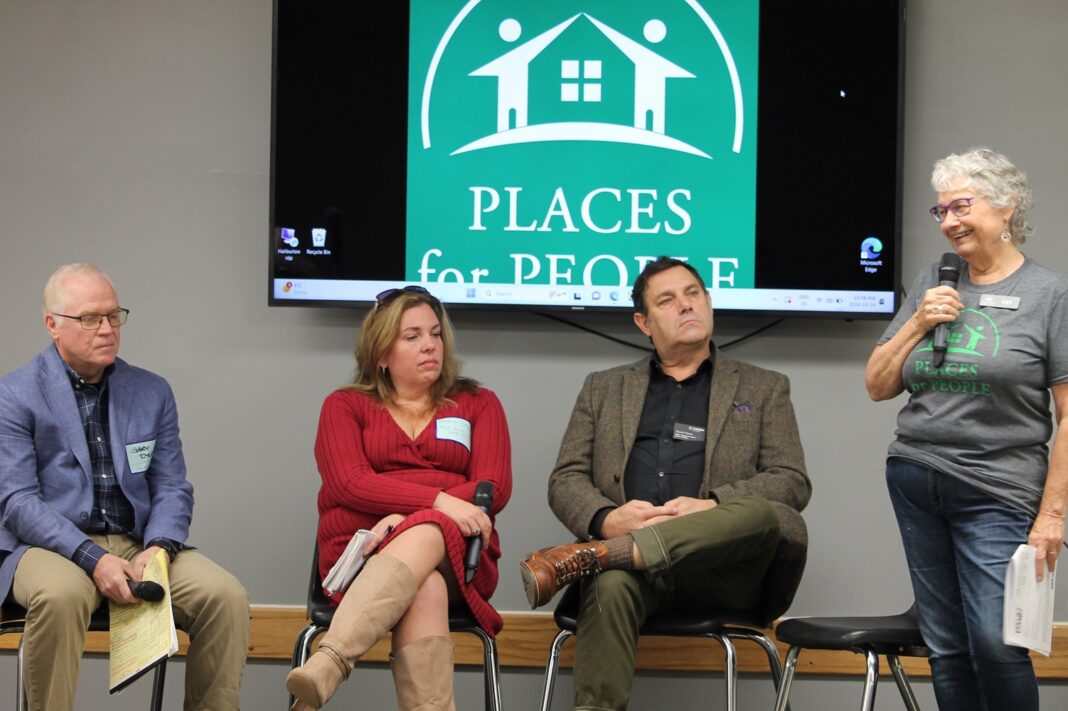Big Hawk Lake Marina owner Sabrina Richards told the Haliburton County Housing Summit Oct. 24 she lives with four men – all employed by the marina – who can’t find housing.
She said the mechanic, apprentice, co-op student, and maintenance man, have all come from outside of the County since there is a shortage of skilled tradespeople. And while they are willing to work and live in Algonquin Highlands, the problem is “where to live?
“I’m looking to stop that and build a place for them to live on my land,” Richards said, adding, “there’s challenges with that. I live on water. The topography means most of my land that is accessible to build on is only accessed by a seasonal road. I’m looking at converting existing other buildings I have; however, it runs into needing a survey, a zoning amendment, change of use permits for the buildings, building permits, a review of septic; a lot right off the bat I have to face before I can even get there.”
She said she is on the wait list to have her property surveyed and hopes things will speed up after that. “But in the meantime, I’m living with four men.”
The all-day forum at the Minden Hills Community Centre was hosted by Places for People. It attracted speakers from the Town of Collingwood and Frontenac County, and featured a panel on working housing and another on densification.
Worker housing panelist, Xavier Masse, the dean of Haliburton School of Art + Design, updated a mix of municipal staff and councillors, as well as the general public, on the student residence. He said the builders will hand over the project to Fleming College on Dec. 20.
It consists of 47 beds in 26 units, with shared dining and living rooms. The college will have to furnish the residence and add finishing touches for a planned Spring intake.
Masse said they are discussing other uses for the residence when not being used by students, such as corporate retreats from the GTA with custom-made educational programs; and a lifelong learning academy model.
County of Haliburton CAO Gary Dyke, another worker housing panelist, brought the room up to speed on plans for the Wee Care property in Haliburton. In partnership with Habitat for Humanity, it hopes to broker housing on the site, as well as an expanded daycare.
They are looking at 68 residential units in addition to bolstering the daycare. Dyke said the two go hand-in-hand because if you are trying to attract workers, you have to support their families as well. It would also supply housing for daycare workers themselves.
He said they are going through the technical phase of the project now.
Dyke added that after listening to Collingwood and Frontenac staffers, it’s about innovation municipalities can bring to the table to address the housing issue.
“There is no one fix, and nobody can do it on their own.” He said municipalities can be nimbler. CAOs and planning staff across the County will soon be re-examining planning programs, identifying obstacles and coming up with strategies to eliminate or mitigate them. He added it’s about advocacy via the Eastern Ontario Wardens Caucus and Rural Ontario Municipal Association. He also poked the province and its “archaic” criteria of selling Crown land at market value. If earmarked for housing, he said the province should charge nothing or a reduced rate for available land.
“When you are managing a city or a county, things like housing and workforce, they’re key elements to economic development. It’s not just bringing in a new industry. It’s creating the atmosphere by which the existing industry can maintain and thrive, and that’s having workers and having places for workers to live,” Dyke said.





